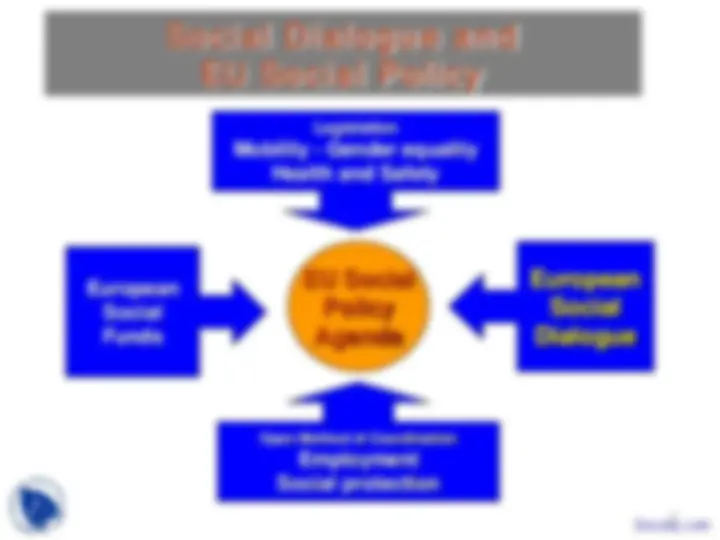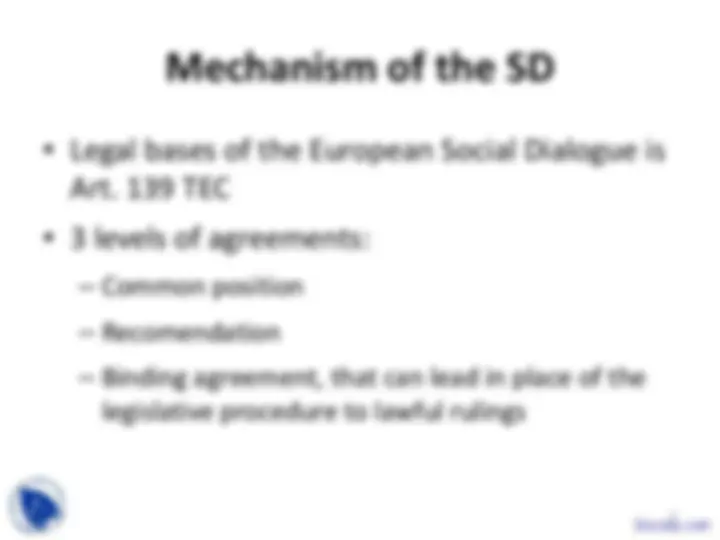









Study with the several resources on Docsity

Earn points by helping other students or get them with a premium plan


Prepare for your exams
Study with the several resources on Docsity

Earn points to download
Earn points by helping other students or get them with a premium plan
Community
Ask the community for help and clear up your study doubts
Discover the best universities in your country according to Docsity users
Free resources
Download our free guides on studying techniques, anxiety management strategies, and thesis advice from Docsity tutors
An overview of the european social dialogue in the chemical industry, focusing on its legal background, the role of social partners and the eu commission, and specific projects such as reach, health and safety, and restructuring. The document also discusses the open method of coordination and the european social policy agenda.
Typology: Slides
1 / 13

This page cannot be seen from the preview
Don't miss anything!







